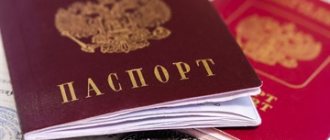What is the maximum number of people allowed in an apartment?
Very often people ask the question: “How many people can be registered in an apartment?” .
This question is relevant because, firstly, many people do not have their own housing and they are forced to register with relatives and close people.
Secondly, some families are so poor that, living in a one-room apartment, they try to accommodate 5 or more people in it.
As far as possible, is it possible to accommodate several people in a small apartment in 2020?
This video is unavailable
[+] Choosing a private master: We save on repairs! We choose a private master! —
How to check the estimate of a private trader? —
We save on apartment renovation! Who is responsible for unloading material and removing waste? —
How to pay a master for work? We save on apartment renovation! —
[+] To help the Customer: Dangerous savings on apartment renovations! How you can't save money! —
https://youtu.be/MVMpd9E6DqY
Repair price is 1 meter! How much does it cost to renovate an apartment in Moscow in 2020? —
Turnkey apartment renovation stages! Apartment renovation procedure! —
How to choose a specialist for apartment renovation? How to take measurements of an apartment! We save on repairs! —
Intermediaries in turnkey apartment renovation! Evil or good? —
We recommend reading: What is needed to register for the care of a pensioner over 80
How many people can be registered in a privatized 1-room apartment?
The owner can register an unlimited number of persons into his own apartment. However, you need to keep in mind that all people who are registered in the apartment must live there (permanently or temporarily).
If a person registers, but does not live in the apartment, then this comes down to such a thing as fictitious registration.
For false data in this case, a person may face one of the following types of punishments according to Art. 322.2 of the Criminal Code of the Russian Federation:
- fine from 100 to 500 thousand rubles;
- salary (income) for a period of up to 3 years;
- forced labor for up to 3 years.
Not a single law of the Russian Federation contains an article that would contain information about the rate of registered people in a privatized one-room apartment.
But if there are a lot of people registered in a one-room apartment, then wait for a check from the Migration Service.
Employees of this organization will definitely check whether those who are registered in a particular living space actually live there.
If the apartment is in shared ownership, then the consent of the co-owners of the property is required to register people.
If they don’t mind, then you can register an unlimited number of people at one address.
How many people can be registered in an apartment by law?
An unlimited number of people can be registered in a 1-room apartment. But there is a condition that must be met: people registered in such an apartment must live in it. If people are registered but do not live there, this means that they are fictitiously registered.
- a fine in the amount of 100,000 to 500,000 rubles;
- a fine in the amount of wages or other income for a period of up to 3 years;
- forced labor for up to 3 years with deprivation of the right to hold certain positions or engage in certain activities;
- imprisonment for up to 3 years with deprivation of the right to hold certain positions or engage in certain activities.
How many people can be registered in a municipal apartment?
Before answering the question, you need to find out what is municipal housing? This is an apartment that belongs to a state structure - the municipality, and not to the people living in it.
A social rental agreement is concluded between the parties, the subject of which is an apartment where tenants can live.
According to the law of the Russian Federation (Article 38 of the Housing Code), the standard living space per person is 12 m.
However, this is not a standard value; this figure may fluctuate in each region of the country. In different cities, local governments have the right to set their own standards.
It is more difficult to register a person in a municipal apartment than in a privatized one . This is explained by the fact that the person who wishes to do so must obtain the consent of the landlord, that is, the municipality, as well as all people living in the apartment.
However, this does not apply to children. In this case, consent is not required.
According to Art. 70 of the Housing Code of the Russian Federation, the landlord may prohibit registering people if the total area of the apartment per person is less than the norm in a particular region.
How many people can be registered in a departmental (service) apartment?
A departmental apartment is a living space that is provided to government employees for temporary residence. It is issued to a person for a specific period.
To obtain registration in such a living space, you need to obtain consent from the owner. Any number of people can be registered in such an apartment.
However, a significant disadvantage is that subsequently you will still have to check out of this apartment and look for another living space for registration.
The fact is that departmental housing is issued for a limited period, after which it goes back to the state.
How many people can be registered in the apartment
How many people can be registered in apartments? When calculating this indicator, it is necessary to take into account the region in which the living space is located. The fact is, the standards for quadrature are set individually for each subject of the Russian Federation and range from 6 m2 to 18 m2. To determine the permissible number of residents registered in a particular apartment, it is necessary to divide the housing area by the standard value established by the municipality.
We recommend reading: Standard tax deduction for military veterans
Official or departmental housing is owned by the organization and is provided to nonresident employees for the duration of a business trip or for the duration of an employment contract. This type of living space cannot be privatized, and registration in it is temporary.
How many people can be registered in a communal room?
The law does not stipulate the number of people who can be registered in a communal room. This means that the owner of the room can register as many people as he wants.
However, you need to understand that by registering a person, the rights of other people living in the room will certainly be violated.
Therefore, before registering another person, you need to obtain written permission from the other co-owners of the room in the communal apartment.
If at least one person is against it, then it will not be possible to register the person. However, you can go to court and get consent to registration without the approval of the other co-owners.
How many people can be registered in a private house?
If a person is the full owner of the property, then there are no restrictions on the number of people registered in a private house.
Restrictions apply only if the private house belongs to municipal housing. In this case, for 10 sq. m (average value) you can register no more than 1 person.
When registering people in an apartment or private house, you need to keep in mind that the cost of utilities will be directly proportional to the number of registered people: the more people are registered, the higher the utility bill will be.
The procedure for registering a person in a privatized apartment
Such a legal procedure should not cause difficulties if there is the owner’s consent to registration. To contact the territorial bodies of the Department of Military Migration Service, it is necessary to comply with the appearance procedure, i.e. A person can only be registered if he is present in person to the relevant authorities.
We recommend reading: Sample purchase and sale agreement for non-residential premises with payment by installments sample
An important condition for such a legal fact is the consent of the owner. “Propiska” in its meaning is an outdated term from Soviet housing law. The Russian legal system uses a more modern term – “permanent (temporary) registration”.
How many people can be temporarily registered in an apartment?
The law does not provide any quantitative framework regarding people temporarily registered in an apartment. This means that you can register any number of people, but we must not forget about such a concept as “fictitious registration”.
Registered persons must live in a temporary apartment, and if a local police officer or migration service officer comes and sees the real number of people living, then the person who registered will face a fine.
Temporary or permanent registration does not in any way affect the number of people who can be registered in an apartment (private house).
The main thing is a person’s desire to live in a certain territory (Law No. 5242-I “On the right of citizens of the Russian Federation to freedom of movement”).
Video: How many people can be assigned to one apartment?
You can learn more about the limit of people registered in an apartment, the need for registration and the measures taken by the authorities to resolve the problem with “rubber apartments” from a short video:
The owner of the apartment himself has the right to decide how many people he can register in it. If the housing is in collective ownership, the decision on registration is made on the basis of the permission of all residents or owners of the living space, and registration in municipal housing depends on the square footage per person and the number of citizens living in the apartment.
How many people can I register in a dorm room?
If the dorm room is owned by a person, then any number of persons can be registered.
If the room is owned by the municipality, then a person can be registered only if there are free square meters in the room.
Depending on the region of the Russian Federation, the standard square footage of housing per person can be 8-12 m.
If the size of the room does not allow for one more person to move in, then he will be denied registration.
Does the number of rooms for registering people matter?
No, it doesn't. The square footage of the apartment matters. After all, it happens that a one-room apartment is larger in size than a two-room apartment.
Also, the number of people registered in the living space is affected by the statute of the property (whether the apartment is owned by the person or is municipal housing), as well as the standard of square meters in a particular region (applies only to municipal housing).
Where can I find out about the number of people registered in an apartment (house)?
To find out whether it is possible to register one more person in the living space, you can contact the Federal Migration Service, Rosreestr.
You can also find out about the number of registered persons when paying for utilities. The receipt will necessarily indicate the number of people registered in a particular territory.
By registering in an apartment (house), a person notifies the state of his location . According to Russian legislation, every person, regardless of age, is required to be registered (have temporary or permanent registration).
In 2020, not a single law states how many people can be registered in a living space. However, you need to understand that the easiest way is to register a person in a privatized apartment (the permission of other residents of the apartment is not required).
The owner of the apartment has the right to register as many people as he likes . If we are talking about municipal housing, then the permissible number of registered people is calculated based on the area of the apartment (house).
How many people can be registered in an apartment in Moscow 2020
The process of registering people in residential premises that are municipally owned, in particular, is noticeably different only in that it will be necessary to obtain basic permission from the state department to register a new person. In addition, if there is a possible lack of personal kinship, registration of this citizen may be refused. In order to register in a communal living space, you will need to subsequently obtain written approval, and only after the consent of all residents of the apartment, but also the persons registered in it. That is why such a procedure for registering in any communal living space, or in municipal housing, can take a noticeable amount of time and take a long time.
We recommend reading: How to Reflect the Purchase of a Power Supply for an Epson Scanner
The maximum number of people registered at one address in municipal housing depends on its area. How many people can be registered in an apartment is determined by the decision of regional authorities, who can change the minimum number of square meters for one person.
How many people can be registered in an apartment according to the law?
The topic of registration is always relevant and has many questions, especially when it comes to the number of already registered citizens in a certain residential area and the possibility of assigning new residents to it. The fact is that the legislation provides for a number of restrictions in this regard, and the registration process itself is carried out according to established rules, failure to comply with which may result in administrative liability.
Registration on the territory of the Russian Federation is divided into two types: temporary and permanent. It is necessary for keeping records and monitoring citizens regarding population migration across regions of the country.
. Having assigned a certain address to the FMS, a person is obliged to live at that address, therefore, if necessary, the migration service can easily find any citizen to resolve any issues that arise.
The permitted number of registered people in a specific living space depends on the type of property, its square footage, and whether it is municipal or owned. And, despite the fact that only the owner of the apartment has the right to decide who to register with him and who not, the state also makes its contribution in this matter
. Therefore, the process of registration and discharge is always controlled by the Federal Migration Service.
How many people can be registered in an apartment - restrictions on footage
Since this housing is privatized, there are no restrictions on the required footage, as with municipal property. Many scammers do exactly this. They purchase a small room or apartment and set up a registration conveyor.
We recommend reading: Increasing Coefficients to Base Salaries for Employees of the Western Region
The concept of fictitious registration is fully defined in Art. 322.2 of the Criminal Code of the Russian Federation. For violations of the provisions of this article, namely if citizens are registered in any living space, but in fact do not live there, law enforcement agencies have the right:
Registration forms
Today, there are several valid forms of registration, which is why many often think that the restrictions on the number of persons allowed to live in a particular living space depend on the chosen type of registration:
| Temporary registration |
|
| Permanent registration or residence registration | It does not have any deadlines, and a note about its availability is placed in the passport of the registered citizen. Such registration gives residents some rights to the living space itself, for example, to participate in its privatization . In addition, residents who have permanent registration have the right to take part in the decision to register other persons in the apartment. |
How many people can be registered in an apartment?
Regarding space restrictions (once again): imagine that three people live in a one-room apartment (husband, wife and child). Two or three more children were born into the family... If space restrictions are introduced in such cases, there will be nowhere to register the children.
Article 322.2 of the Criminal Code of the Russian Federation Fictitious registration of a citizen of the Russian Federation at the place of stay or at the place of residence in a residential premises in the Russian Federation and fictitious registration of a foreign citizen or stateless person at the place of residence in a residential premises in the Russian Federation (introduced by Federal Law of December 21, 2013 N 376 -FZ) Fictitious registration of a citizen of the Russian Federation at the place of stay or at the place of residence in a residential premises in the Russian Federation, as well as fictitious registration of a foreign citizen or stateless person at the place of residence in a residential premises in the Russian Federation - is punishable by a fine in the amount of one hundred thousand to five hundred thousand rubles or in the amount of wages or other income of the convicted person for a period of up to three years, or forced labor for a period of up to three years with deprivation of the right to hold certain positions or engage in certain activities for a period of up to three years or without it, or imprisonment for a term up to three years with or without deprivation of the right to hold certain positions or engage in certain activities for a period of up to three years. A person who has committed a crime under this article is exempt from criminal liability if he contributed to the disclosure of this crime and if his actions do not contain another crime.
We recommend reading: Personal income tax for foreign citizens working under a patent in 2020
Normative base
To register a person in the living space, it is necessary to obtain consent from the owner of the apartment, who can be both the owner and the main tenant (in the case of municipal housing).
The registration itself, regardless of its form, is carried out in accordance with the regulatory framework established at the legislative level. To understand how the process of registering citizens for housing is carried out, you should know in accordance with what documents the solution to this issue is regulated.
The following documents define the registration rules:
- State Decree No. 713 of July 2020, last edited in March 2020.
- Law “On the right of citizens of the Russian Federation to free movement throughout the country and on independent choice of place of residence or temporary stay” (No. 5242–1).
- FMS Order No. 208 of September 2020.
- Housing Code, Art. 70.
- Order of the Ministry of Internal Affairs and the Migration Service of May 19, 2020.
- Code of the Russian Federation regarding administrative offenses (Article 19.15).
Article 19.15. Residence of a citizen of the Russian Federation without an identification document (passport)
If you have any questions regarding registration at your place of residence, the answers can be found in the above legislative acts. A detailed study of them will help to avoid administrative violations in this area of the law and register a person in accordance with all the rules.
Law “On rubber apartments”
Particular attention should be paid to the law on registration of citizens, which came into force in January 2020. We are talking about the so-called “rubber flats”
.
In accordance with the regulatory act, the owner of privatized housing has the right to register as many people in his living space as he deems necessary
. However, if there are too many residents assigned to the apartment, and even with temporary registration, then the Federal Tax Service may have questions.
The Migration Service has the right to visit such an apartment and check to make sure that all registered people actually live at the specified address.
Therefore, when registering absolutely strangers in your living space who are not related to the owner and who do not plan to live at the specified address in the future, you must remember about criminal liability for fictitious registration.
If we talk about municipal housing, the law “on rubber apartments” states that citizens can be registered only in accordance with the square footage per person standards. In addition, for registration, only the consent of the main tenant is not enough - the final decision is made by the municipality.
It is also worth mentioning that in the case of municipal apartments, any fraud with fictitious registration can turn against the owner of the property in the event of its privatization. Thus, according to the law, every registered citizen has the right to apply for participation in privatization, regardless of the relationship with the main tenant. In addition, for illegally registered residents, the owner will face large fines.
Certificate of state registration of rights
How many people can be registered in an apartment in 2020?
It is worth noting that the chosen form of registration (temporary or permanent) does not in any way affect how many people can be registered in the apartment in 2020. The main thing that determines the permitted number of residents is whether the housing is privatized or municipal.
If we talk about children, then, regardless of the type of living space, all minor citizens have the right to automatically be registered in an apartment together with one of the parents. In this case, there is no need to obtain permission from either the owner or other registered occupants.
Municipal
Municipal housing does not belong to the people living in it, but to a government agency called the municipality. A social tenancy agreement is concluded between the agreed parties, according to which the tenants live in an apartment received from the state.
It is much more difficult to register a person in a municipal apartment than in a privatized area.
To do this you need:
- obtain permission from the municipality;
- find out how many people can live in a particular apartment (in accordance with the area standards per person);
- obtain written consent from all persons registered in the apartment.
As for the consent of the tenants, there is no need for it if we are talking about registering the children, spouse or parents of the main tenant with whom the municipality has entered into a rental agreement.
Privatized or private house
It is easiest to register a new tenant in a privatized apartment, since you do not need to ask for permission from the municipality. In addition, the owner of the property independently decides whether to register a person on his premises or not.
. Other persons living in the apartment do not have the right to vote in this case.
But when registering too many people in a privatized apartment, you should remember that the Federal Tax Service has the right to visit the owner with an inspection. In order to avoid any suspicion on the part of the Migration Service, it is necessary to remember the norms of footage per person: 6 sq.
. meters per resident in an apartment.
The same rule applies to registering new residents in a private house. The number of assigned people can be unlimited, but it is better that it does not exceed the norms established by law and regulated by the Housing Code.
In a communal room
By law, the owner of a room in a communal apartment has the right to register as many people as he needs. However, this will violate the rights of the owners of the remaining rooms.
Therefore, when the communal service takes part in the registration process of residents, the owner of the room also needs to take written consent from each apartment owner to register a new person.
But unlike a municipal apartment, the refusal of other owners can be challenged. Thus, the owner of the room can obtain consent for registration through the court
. If we talk about close relatives and children of the owner, then registration can be carried out without any permission.
Contact the MFC or the passport office to find out what you need for registration.
Is it possible to register a child with his grandmother without parents - see here.
Temporarily
All citizens who, for one reason or another, have not lived at their actual place of registration for more than three months, are required to be temporarily registered on the territory of the Russian Federation. Thus, registration at the place of residence is most often necessary for studying or working in another city.
You can register temporarily for a period of 90 days, while the person retains his permanent registration. No one can force a person to leave his place of residence to obtain short-term registration.
Temporary registration does not give a person any rights to an apartment, that is, he cannot sell or rent it out, or use the property as collateral. According to the law, a temporarily registered person only has the right to live in the specified area until the lease agreement expires.
This form of registration does not pose any threat to the owner of the home regarding its loss. A problem with temporary registration may arise if it is issued for a woman with a minor child.
Thus, to register children at the mother’s address, the owner’s permission is not required (they can be automatically assigned to the same address). This is fraught with the fact that the owner will not be able to discharge the child before he comes of age and will not be able to challenge this fact in any way even in court.
Sample owner's statement of consent to registration
How many people can legally be temporarily registered in an apartment in 2020?
This responsibility is assigned to the owner or his authorized representative, and not to the foreign citizen. Therefore, renting out an apartment, registration, as well as monitoring the residence, as well as responsibility for compliance with the rules of residence (resolving possible conflicts with other residents) are all the responsibility of the apartment owner or his legal representative, and not foreign citizens. It is very important that, in order to minimize risks, owners require foreign citizens living and registered in the apartment to enter into an agreement to insure their civil liability to third parties for possible disasters that may occur due to their fault: flooding, fire, damage to property.
- Free legal advice
- Registration of a foreigner in an apartment - how many people can be registered?
- Why do foreigners need to register at their place of stay and residence?
- How many people can legally be temporarily registered in an apartment?
- How many people can be registered in a private house by law?
- How many people can be temporarily registered in one apartment?
- Registration of a foreign citizen in Russia (registration)
- How many people from the CIS can be temporarily registered in a private house
We recommend reading: How much do single mothers get paid per month in 2020? Child benefit up to 16 years in Voronezh
Dependence on footage
The total footage of the apartment itself depends on the number of people the owner can register. It does not matter how many rooms the living space has
.
If, for example, we are talking about 60 sq
. meters and, according to average indicators, they can accommodate about 6 people, it does not matter whether it is a studio or a three-room apartment.
The value of footage plays a big role in the case of registration in municipal residential real estate. You cannot register more than the permitted number of people in it, otherwise the owner will face a fine.
If we talk about privatized apartments, then residents can be registered in them regardless of the square footage, but this may arouse suspicion from the Federal Tax Service, which will entail an inspection. However, in the absence of fraud with fictitious registrations, the owner can register as many people as he wants, no one has the right to prohibit him
. The main thing is that they all live at the specified address.
In one or two rooms
In accordance with the Housing Code for regulating the number of square meters per registered person, the average for Russia is 10 square meters. meters per resident
. So, based on these indicators, it is easy and independently to calculate how many people can be registered in a one-room apartment.
For example, the total area of the property is 40 sq. m. meters, then four people can be registered in it
. If we are talking about a two-room apartment of 60 sq. meters, then the permissible number is 6 persons.
The exception is close relatives and children; these restrictions do not apply to them. Also, the square footage of the living space does not play a role when registering citizens in a privatized apartment.
Norms by region
The square footage standards for premises that allow registering a certain number of residents vary depending on the region. Thus, the average for Russia is 10 square meters
. meters, but if we look at it regionally, then this figure is different.
Regional indicators of square meters per registered resident vary from 6 to 18 square meters. meters. So, for example, in St. Petersburg there are 9 square meters per person, in Voronezh at least 14, and in Moscow - 18.
To calculate how many people can legally be registered in an apartment, you need to make calculations in accordance with the indicators of your region.
How to find out the number of registered
Before you begin the process of registering a new tenant, you must first find out how many people are already assigned to a specific living space. How can I find out the current number of persons registered in an apartment?
To do this, you can contact one of the following authorities:
- Unified State Register;
- FMS department;
- Passport Office;
- to the property manager;
- to the chairman (in the case of condominiums).
To obtain the necessary information, the applicant will need a passport with a registration mark and an application for the issuance of a corresponding certificate.
In addition, the number of registered people can be found out by examining the receipt for utility bills. It always states how much a person pays for living at a specific address, and what amounts.
If you don’t have a paper receipt at hand, you can get its online version by going to the website of the municipal institution, and in your personal account assigned to the living space, see the number of registered persons.
General information about the rights and responsibilities of residents
The rights of residents of a municipal apartment are regulated by the Housing Code - Chapter 8, and are enshrined in an individual social tenancy agreement. As a rule, to resolve any controversial situation, the information and data contained in these two sources is sufficient.
Important! If you are not sure whether you have the right to perform a particular action, look at your social employment contract and read our recommendations below. The situation should become clearer.
If the situation is ambiguous, then the legal norms of the Civil Code, the Law on the Protection of Consumer Rights, and local administrative regulations are involved. But in this situation you cannot do without qualified legal assistance.
To become registered residents of municipal housing, the following facts are required:
- official registration at the place of residence - registration in the apartment;
- inclusion of the person specified in the social tenancy agreement as a family member.
Along with their rights, registered residents receive certain responsibilities, for violation of which liability is established. In addition, there is a certain list of actions that under no circumstances can be performed with municipal housing.
List of fundamental rights with comments
The basic rights of registered residents are related to living in public housing. These are actions that allow you to use an apartment without restrictions, move in and evict other citizens, rent, exchange and privatize residential premises.
Use the apartment for its intended purpose
The fundamental right from which all others flow. Registered residents have the right to live freely in the municipal housing allocated to them for the entire duration of the contract - and no one has the right to evict them from there against their will without a court decision.
This right also has a downside - you cannot use housing for other purposes. For example, it is prohibited to organize offices of legal entities and shops in municipal apartments. If the fact of use outside the scope of the DSN is revealed, the contract will be terminated, and the registered residents will be evicted.
Attention! When registering an individual entrepreneur, the possibility of indicating this address for inclusion in the Unified State Register of Individual Entrepreneurs must be clarified with the local administration. You may need to obtain written consent from the municipality.
Move in and register other persons
The tenant and his family members have the right to register other persons in the housing. The right is limited by the need to obtain a number of consents and the accounting norm for the provision of housing.
In particular:
- When moving a minor to a parent, no one’s consent is required. At the same time, in order for a nephew to move in with his aunt, he will need to take the written consent of other family members.
- When planning to register his adult child, spouse or parent, the tenant must obtain the consent of the other already registered family members. The administration's consent is not required.
- When moving in other persons (relatives or not), you must take written consent from the registered family members and the administration. For example, if you need to register a brother, sister, aunt and other relatives.
In all cases where it is necessary to obtain the consent of the administration, the area of the premises also matters. So, if after registering a new person the area becomes less than the registered area for the region (for example, less than 10 square meters), then the municipality has the right to prohibit the move-in.
Read more about permanent and temporary registration in public housing.
Require a major overhaul
The administration of the locality has the obligation to carry out major repairs of a residential building within the time limits established by law. Typically, the frequency is determined by the deterioration of the housing and the amount of available funds in the budget. However, tenants have the opportunity to demand major repairs if they have not been carried out for a long time or if the home is objectively required to be updated.
Any requirements must be submitted to the administration in writing or voiced during an official reception of specialists from the relevant department - usually the Department for Municipal Property Management.
Move to another home during major renovations
During major repairs, residents registered in municipal housing have the right to move to other housing, and the administration must provide it to them. In practice, relocation to similar housing is difficult due to the lack of suitable premises
. Therefore, repairs can be carried out without relocation, depending on the scale of the work.
However, if the work being carried out threatens the health of the registered residents, they are required to move them to another apartment.
Exchange housing
Registered residents have the right to exchange their existing municipal housing for another if such a need arises. For example, when moving to another region or when relocating a family. The main thing is that there are people with a suitable option.
The exchange of municipal housing is possible with the consent of all residents and with the permission of the administration. For more information about this procedure, read the article “Is it possible to exchange a non-privatized apartment.”
Privatize an apartment
One of the most important rights of registered residents is to privatize municipal real estate for free, that is, transfer it from the property of the city/village to their private property. After privatization, the tenant acquires a completely different status - the owner of the property.
. He no longer needs to ask permission to exchange premises, register any persons in it, carry out major repairs, redevelopment and reconstruction.
However, privatization also imposes other obligations - for example, paying taxes annually and coordinating reconstruction projects with the housing inspectorate.
Read more about the privatization of municipal real estate under a social tenancy agreement.
Sublease an apartment
The tenant can sublet municipal premises. To do this, you must obtain the consent of the registered residents and, of course, the local administration.
. The possibility of renting out living space is limited by the accounting norm. As a result, the number of square meters per person should not be less than the standard established in the region.
Attention! The main tenant will be responsible for the actions of the subtenant under the concluded social tenancy agreement. For example, it is the main tenant, and not the actual tenant, who will compensate the damage caused to the municipality.
Rights of residents of a dilapidated building
If a building is declared unsafe, the owners of the apartments in it receive either alternative living quarters or monetary compensation. For tenants, the situation is different - the housing belongs to the budget, so no one will pay monetary compensation for it
.
However, you can still count on resettlement
.
Residents of municipal premises registered in an emergency building are subject to relocation to other premises similar to the previous ones
. The social rental agreement must be re-signed with them to a new address.
To receive monetary compensation, the apartment must be privatized before the apartment building is assigned emergency status. Read more about the privatization of dilapidated and emergency housing.
Main responsibilities
Registered residents not only have rights in relation to municipal housing, but also a number of responsibilities. In each case, liability is provided for violation.
Pay rent
The main responsibility of residents. The amount of rent is determined in the social tenancy agreement
. It also describes the procedure for paying for utilities - as a rule, the rent includes the rental fee itself, payment for utility resources and for the maintenance of common areas.
Rent must be paid regularly within the terms established by the contract (most often before the 10th of the next month). Penalties will begin to accrue for late payments.
. It is not recommended to accumulate debts, as this will cause problems with privatization.
Keep the apartment in good condition
This responsibility includes caring for the property and the equipment, inventory, and furniture located in it. Registered residents are required to:
- carry out routine repairs every five years depending on the condition of municipal housing - sometimes it is enough to replace the wallpaper, and sometimes you have to replace plumbing fixtures broken by residents;
- look after pets and maintain cleanliness;
- observe the rules of sanitation and hygiene;
- prevent clogging and littering of housing;
- prevent the proliferation of insects (bugs, cockroaches), mice that may appear due to the poor sanitary condition of the apartment itself;
- treat with care not only the internal economy, but also the common property and local area;
- use utility resources economically;
- observe the regime of silence and the rights of neighbors to comfortable living in the apartment building.
Redevelopment and redevelopment are permitted only in agreement with the administration of the locality.
For violating the rules, residents may receive a warning from the administration staff, and in serious cases, even be evicted from the apartment by a court decision.
What not to do
Regardless of the content of the social rental agreement and other circumstances - the length of actual residence, the presence of minors, disabled people or pensioners, there are actions that cannot be performed with municipal housing. They are expressly prohibited by law. The actions are related to the right to dispose of state apartments.
Sell an apartment
Municipal housing cannot be sold, no matter how long the registered tenant has lived there. Only the owner can dispose of the apartment - in this case, the local administration
. To obtain the right to sell, you must first privatize the property.
Some tenants, despite the ban, enter into imaginary sales and purchase agreements with buyers who are not legally savvy. For such actions they may face criminal prosecution for fraud.
However, there are legal ways to transfer ownership of municipal housing to an interested party. Read more about the possibility of selling municipal housing here.






